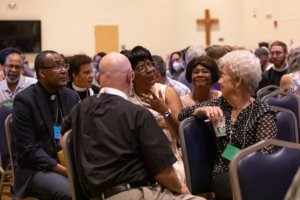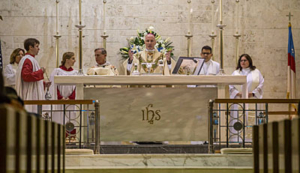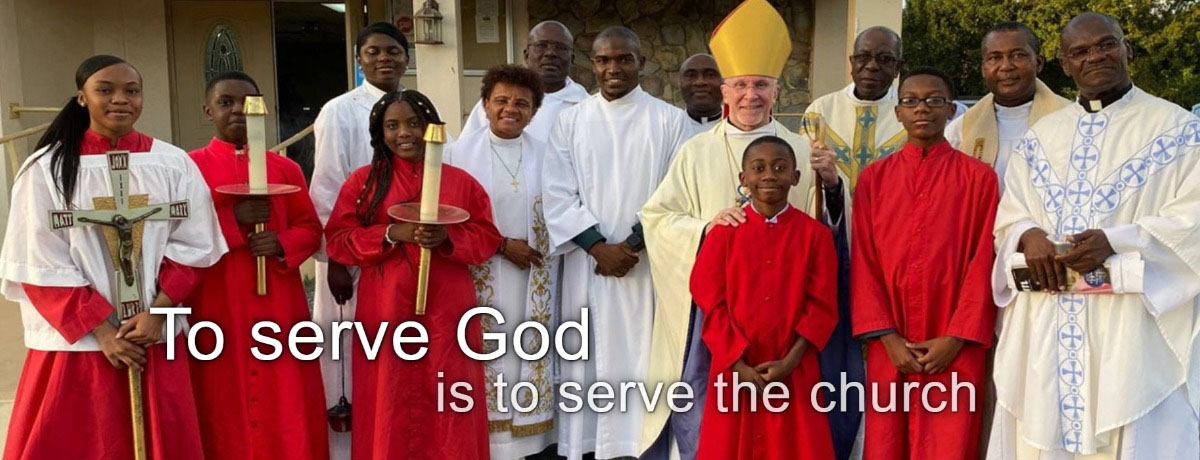CCFL Diaconal Formation Program – Course Requirements
General Convention 1970 determined seven areas of theological study for persons in formation for ordained ministry. The seven areas are: 1) the Holy Scriptures; 2) church history; 3) Christian theology; 4) Christian ethics, and moral theology; 5) studies in contemporary society, including racial and minority groups; 6) liturgics and church music; and 7) theory and practice of ministry.
The CCFL program in diaconal studies offers courses in each of these seven areas. Most courses meet once a week online for ten weeks unless otherwise noted. It is possible to complete the coursework in two years. Students must take the following courses or provide documentation of equivalent coursework completed from other degree-granting institutions (such as a college, seminary, or graduate program in theology).

The Holy Scriptures:
Introduction to the New Testament (NT-101)
New Testament II (NT-201)
Introduction to the Hebrew Bible and the Pentateuch (OT/HB-101)
Introduction to the Hebrew Prophets (OT/HB-102)
Hebrew Bible II: Latter Prophets and Writings (OT/HB-201) or The Hebrew Bible and its Ancient
Milieu (OT/HB-204)
Church history:
Episcopal Church History (AS/CH-105)
Episcopal Polity and Culture (AS-102)
Anglican Studies (AS-101) or Anglican Spirituality (AS/SP-204)
Christian theology:
Introduction to Systematic Theology (ST-101)
Introduction to Theological Thinking (ST-102)
Christian Ethics:
Introduction to Theological Ethics (ETH-101)
Contemporary Society:
Society, Ministry and the Christian Faith (ETH-205)
 Liturgics:
Liturgics:
Introduction to Worship (LM-101)
Pastoral Ministry and Pastoral Offices (PFL-102)
Pastoral Liturgics (PFL-204)
Practica in Worship (LM-301, 302, and 303) – offered as a series of three half-day workshops
Theory and Practice of Ministry:
Introduction to Theological Formation (SP-101)
Introduction to Diakonia and Diaconal Formation (SP-103)
Diaconal Formation Reflection Group (SP-205) – meets twice a term
Homiletics I (HOM-101)
Homiletics II (HOM-201)

